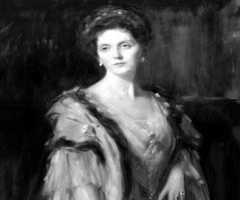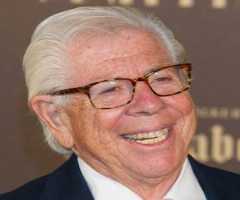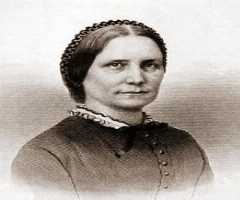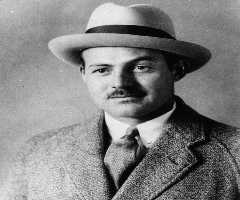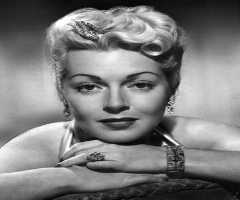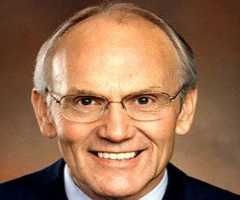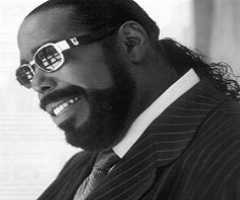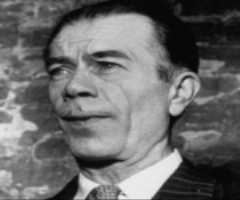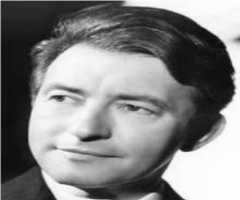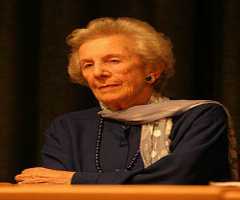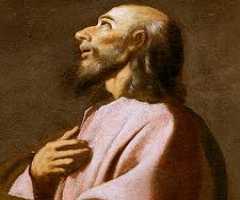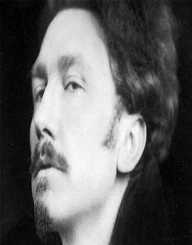
Also Known For : Poet
Birth Place : Hailey, Idaho, United States of America
Died On : November 1, 1972
Zodiac Sign : Scorpio
Ezra Pound Biography, Life, Interesting Facts
Ezra Pound was widely known as a non-native American poet and a prominent figure in the early modernist movement in poetry. He was mainly known for developing Imagism-the 20th-century English and American poetry. The movement preferred the use of strong language, high musical and verbal expression as well as simple imagery.
In 1912 Ezra Pound commenced with his poetic career publishing over three works consecutively. His effort was seen in a collection of 25 poems known as Ripostes in 1912. Others like Hugh Selwyn Mauberley and The Cantos followed. The mentioned pieces of poetry consumed his middle and belated career. In the midst of all, he also promoted other non-famous poets such as T.S Elliot and James Joyce. Ezra also participated in world politics and journalism.
Early Life
On October 30, 1885, Ezra Weston Pound was born in Hailey, Idaho, the United States to Isabel Weston and Homer Loomis Pound. He was the only child of Isabel and Homer. Isabel didn’t like to live in Hailey, and when Ezra was 18 months old, she moved to East and left him with his protective father. He later followed them in 1889 where Homer landed an assayer job at Philadelphia Mint. They then proceeded to Pennsylvania in the mid of July where they purchased a six-bedroom house in Wyncote town.
Ezra Pound attended different elementary schools that were governed by Quakers such as Miss Eliot’s school and Miss Heacock’s Chelten Hills School. He joined the Cheltenham Military Academy from 1898 to 1900 where he wore Civil-War designed uniforms. He was taught to shoot, drill and the worth of devoting to his Royals. Ezra was independent, unpopular and most of all an intelligent young man.
From the start, Ezra Pound knew his calling, and in November 1896 he published Jenkintown Times-Chronicle. At 11 years old Ezra attended the University Of Pennsylvania College Of Liberal Arts in 1901. Here he resolved romantic mysteries than any other legend. He innately defined the poetic translations as well as the effect of using one language. In his research, Ezra learned less or more than nine foreign languages. He always fought for what he believed was right for him and not to please others.
Education
In 1905 Ezra Pound graduated with a BPhil, and he later joined the University of Pennsylvania to study Romance Languages. In 1906 he earned Masters of Arts. With his urge and zeal for study Pound received a Harrison fellowship award and $500 travel grant. He was recognized for writing a thesis about the jesters in Lope de Vega’s philosophical dialogues.
Ezra Pound used the grant to spend time in Europe, Madrid libraries, and several royal palaces. Here he witnessed the attempted murder by insurgents of King Alfonso; he feared to be recognized and left the country. He moved to Paris where he spent his time at the Sorbonne as well as London.
In the mid of July Ezra Pound went back to the United States. Here he published his very first essay titled as the Raphaelite Latin. In 1907 he seemed to annoy his English teacher for awkward assertions during lectures. He vehemently argued that George Bernard Shaw was way ahead of Shakespeare. Moreover, a German philosopher, Joseph Schelling advised him to focus on other things instead of wasting his time studying. In a short while, Ezra dropped out without a completed dissertation.
Early in 1907, Ezra Pound landed a teaching job at Wabash College in Indiana. After an extended period, he started to provoke the college rules. He smoked every hour and every place. He also irritated his landlords by bringing different women and entertaining friends. This forced him to move from one house to the next. He was then dismissed and went back to stay in Europe.
Ezra the Poet
In 1908 Ezra Pound left Europe and moved to Gibraltar in the mid of March. Here he worked as an American tour guide where he earned $15 a day. He later moved to Venice and USA where he wrote several poems such as A Lume Spento, but he didn’t manage to publish the collection. The same year he went to London where he persuaded a reputable publisher, Elkin to display some of his books. Even though he didn’t receive favourable remarks as he had expected, he heard his name in the literary coteries.
Ezra Pound published another book titled as “A Quinzaine for This Yule.” He later went to teach at Regent Street Polytechnic. In the meantime, he went ahead and persuaded his former publisher to display his three books. In 1909 he published ‘Persona of Ezra Pound’ collection. This brought him prominence where he followed it up with ‘The Spirit of Romance’ and ‘Exultation of Ezra Pound.'
After a long possible wait, Ezra Pound was accepted in the London artistic circles. Here he met Henri Gaudier-Brzeska and a famous poet, T.E Hulme. For a little cause, Ezra’s work was sponsored by the Margaret Lanier Cravens in America.
In the mid of 1910, Ezra Pound went back to the United States where he tried to establish his poetic career in Philadelphia. When he waited without success, he moved to England in 1911. After a short visit to Paris, he opted to stay in London where he wrote weekly columns at The New Age social journal.
An Imagism Movement
Early in 1912, Ezra Pound chaired the London correspondent of Poetry that was earlier founded by Harriet Monroe. He tirelessly worked day and night by reviewing the significant works of talented poets such as Robert Frost. The same year, he met with Hilda Doolittle and Richard Aldington with whom they opted to start an Imagism movement. They planned to eradicate or eliminate any word that wasn’t presentable according to logical rules.
In 1912 he published ‘Ripostes of Ezra Pound’ book that comprised of 25 poems. This was his very first illustration of Imagism. It was also the only book that contained the word ‘Imagiste’ of all of his collections. In 1914 Ezra Pound began to write Egoist where he published the ‘Des Imagistes’ the original book that was used for Imagism movement. He also helped James Joyce to publish famed novels such as Ulysses and Portrait of the Artist as a Young Man’.
In the same period, Ezra Pound continued to follow his general rules. Here he started his unending poem The Canton in 1915. Ezra wasn’t sober in his work, but he took a long time to publish the 'Canton III' in the Poetry field. Probably the delay was caused by the World War I. In the end, he managed to publish a series of poems in the mid of 1920. He then went to stay in England and his final work was that of the ‘Hugh Selwyn Mauberley’ in England.
Personal Life and Legacy
On 20th-April 1914, Ezra Pound married Dorothy Shakespeare while on his work in London. They were blessed with one son Omar who was raised by Olivia Shakespeare, Dorothy’s mother. Pound didn’t have time to for his son. Pound also had a long-term affair with Olga Rudge, an American violinist. Both met in Paris, and they had a daughter named Mary.
Ezra’s partners; Olga and Dorothy stood by him through thick and thin. But Olga took good care of him when he was admitted to St. Elizabeth’s hospital due to insanity. Unlike his previous relationship with his son, Ezra took some ample time with his only daughter, Mary. On November 1, 1972, Ezra Pound was pronounced dead due to intestinal blockage. He was buried in Isola di San Michele, the Island cemetery.
